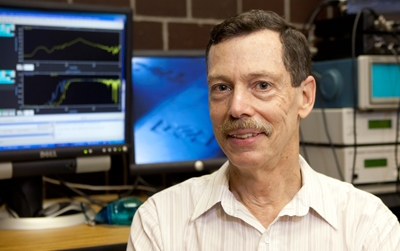
IMPROVING CAMPUS INFRASTRUCTURE
Some of the major improvements to infrastructure completed over the summer are very visible; others are not. Read in this issue about the many major projects completed by Physical Facilities and Information Technology Services, as well as the new programs offered by the University Center for Training and Development.

SCHOOL OF PHARMACY AND PHARMACEUTICAL SCIENCES OPENS NEW BUILDING
The opening of the new, $60-million School of Pharmacy and Pharmaceutical Sciences at the University's Health Sciences Campus in Johnson City, N.Y., headlines this quarterly report, but there's also good news about collaborations, external funding and student successes. Read more in this issue.

SUCCESSFUL INITIATIVES SUPPORT STUDENTS
It takes donors at many levels to make Binghamton University successful, and in this issue of the quarterly report, you can read about a number of them. Whether it's AVANGRID offering full-tuition scholarships and capstone project support, or playing golf to benefit the Alumni Legacy Scholarship, the Division of Advancement works with Binghamton supporters.

BINGHAMTON RESEARCH FUNDING SETS RECORD
Binghamton University reported research expenditures totaling $47.5 million in 2017-18, an increase of about 19 percent from the previous fiscal year. The figure tops 2011-12, the campus’ all-time best year for research funding, when just over $40 million was reported. The new record, which follows several years of steady growth, is an important sign of the campus’ creativity and innovation. Healthcare research accounted for nearly a third of expenditures, with electronics packaging and systems engineering following at about 22 percent.

BAXTER THE BEARCAT BOOSTS SCHOOL SPIRIT
The Division of Student Affairs spent the summer hosting students and families for orientation and preparing for the opening of the fall semester. With some new people on board and some others with new duties, it has been a busy time. Not too busy, though, to show Binghamton University pride, as you'll read about the new Baxter the Bearcat Bench in the University Union in this issue.

STUDENT-ATHLETES CONTINUE TO SUCCEED ACADEMICALLY
Student-athletes continue to shine on and off the courts and fields. The Athletics Department sets high academic standards, and student-athletes surpass them across the board. Read about the accomplishments made by student-athletes in their sports and in the classroom – and check out the videos showcasing fall sports and the new women's head basketball coach, Bethann Shapiro Ord, in this issue.

HELPING TO MAKE THE CAMPUS MORE INCLUSIVE
The Division of Diversity, Equity and Inclusion works to educate and empower everyone on campus in ways that create a welcoming community. From the Udiversity Educational Institute, that holds trainings for students, faculty and staff, to the Multicultural Resource Center and Q Center, the division's offices that work to build bridges and support students though education and events such as Sundaze, part of its Welcome Week programming. Read about the division's recent initiatives in this report.

DONOR SUPPORT ADVANCES BINGHAMTON UNIVERSITY
The Binghamton University Foundation had a successful 2017-18 year, bringing in the second highest amount of cash ever in support of the University. Read the numbers in this issue of the quarterly report, and learn one way the Foundation celebrates its donors.

Tech fund boosts Binghamton inventors
Binghamton University researcher Ron Miles invented a tiny directional microphone — suitable for use in hearing aids — that filters out unwanted sounds. Now, with help from the SUNY Technology Accelerator Fund, he hopes to bring the idea to the marketplace.
Technology for the hearing-impaired is hardly perfect. The small microphones contained within hearing aids do a good job of boosting volume, but that can be a problem in a noisy restaurant as background sounds get boosted as much as your dinner date’s conversation. Miles used a tiny structure found in the ear of a fly, Ormia ochracea, as a model to develop the world’s smallest directional microphones.
His research received several million dollars in funding from the National Institutes of Health nearly a decade ago, but that money was focused on scientific discovery and not on the development of a commercial product. Last year, the Research Foundation for the State University of New York (RF) supported development of the technology with $50,000 from the SUNY Technology Accelerator Fund (TAF). Now, Miles has earned an additional $100,000 from the fund to develop his microphone in a market-strategic way. Binghamton University will match that $100,000, providing additional resources to advance this research.
“Dr. Miles’ work is a perfect example of the real-world impact of SUNY research,” says Timothy Killeen, president of the RF and SUNY vice chancellor for research. “Ground-breaking research is being conducted by SUNY faculty and students across New York State. Our job is to provide the support that facilitates the advancement of invention to produce commercially viable technologies that serve the public good and trigger entrepreneurial and economic opportunity.”
The TAF also announced first-round funding for six new projects. Binghamton bioengineer Kenneth McLeod had one of the winning proposals, with a plan to develop a personalized heating system that is designed to save energy while allowing people to manage their weight by maintaining a consistent body heat balance.
Read more at http://discovere.binghamton.edu/news/inventors-4954.html